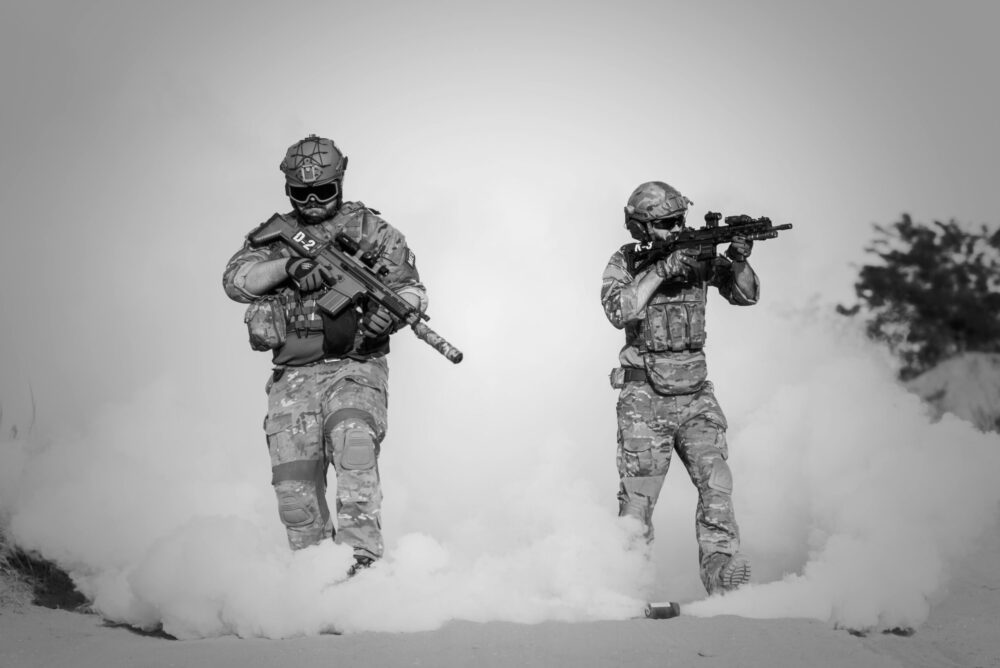OU News
News from The Open University
- Home
- Five books about modern war
Five books about modern war
Posted on • Arts, Arts and social sciences

As Russia’s war on Ukraine continues to dominate the media, reports from the front lines show uncannily familiar scenes of soldiers living in trenches like their counterparts in the First World War. As stories of deals, betrayal and high politics lead the news agenda, it’s important to think about the human cost of conflict says Dr Andrew Griffiths, Staff Tutor and Senior Lecturer in English and Creative Writing at the OU. These five books will take you on a journey exploring the damage done to individuals and societies by modern war.
1. Regeneration by Pat Barker, (published by Penguin Essentials, 2014)
Adapted for film in 1997, Pat Barker’s novel re-imagines the friendships between war poets and soldiers Siegfried Sassoon, Wilfred Owen and Robert Graves at the Craiglockhart military hospital.
There they encounter pioneering military doctor and psychologist W.H.R. Rivers. Contrasting attitudes to psychological trauma lie at the heart of this book. Rivers advocated a talking cure, in contrast to the heavy-handed approach of less sympathetic physicians.
Barker adeptly weaves fiction and historical fact into an engaging story. As in reality, Sassoon finds himself in the hospital after making a public protest against the continuation of the war.
Rivers grapples with the ethics of treating traumatised men so they can return to the front lines. Patients at Craiglockhart illustrate various forms of psychological pain inflicted by war. Building a fictional narrative around real lives is a tricky task, but Barker achieves an impressive sense of authenticity.
2. Catch-22 by Joseph Heller (published by Vintage Books, 2019)
Heller’s blackly comic 1961 novel follows the career of John Yossarian, a US Army Air Force bombardier (bomb-aimer). Heller himself flew 60 missions over occupied Europe as a bombardier and the book deals with the madness he sees as inherent in warfare and in the institutions that wage war.
Yossarian is an anti-hero, understandably keen to avoid the extraordinary danger of bombing missions. He asks a medic to ground him because he’s crazy.
The medic explains that trying to avoid missions proves he’s rational enough to fly. ‘They’re not going to send a crazy man out to be killed, are they?’, asks Yossarian. ‘Who else will go?’, replies the doctor.
That’s Catch-22, and there’s no way out for Yossarian, or for any of the other characters caught up in the machinery of war. For all its humour, the book leaves a lingering sense of the arbitrary violence and injustice of conflict.
3. The Things They Carried by Tim O’Brien (published by Harper Collins, 1991)
Vietnam veteran O’Brien draws on his experiences as an infantry soldier in this collection of connected short stories. Following the men of Alpha Company through Vietnam and back home to the USA, the stories grapple with the challenge of telling the story of the war.
How do you share memories of extreme experiences if you can’t quite make sense of them yourself?
‘In many cases a true war story can’t be believed’, writes O’Brien, ‘Often the crazy stuff is true and the normal stuff isn’t, because the normal stuff is necessary to make you believe the truly incredible craziness’.
O’Brien shows his readers often disturbing flashes and fragments of memory, and he shows us why they are so hard to put together in a narrative.
4. Anatomy of a Soldier by Harry Parker (published by Faber & Faber, 2016)
Parker’s debut novel, Anatomy of a Soldier offers a strikingly different perspective on conflict. Beginning with Captain Tom Barnes’s catastrophic injury in an IED blast, the book is written from the perspective of the objects he comes into contact with: the tourniquet tightened around a shredded thigh; the sack of fertiliser used in the roadside bomb; items of military and medical equipment; a service medal; a prosthetic leg.
The effect is momentarily disorientating as the reader gets their bearings in each chapter, mirroring the protagonist’s shattering experience. Parker draws on his own experiences of service in Afghanistan, and of recovering from severe injury. His book might just be the most powerful and innovative literary response to that conflict yet published.
5. Night Train to Odesa by Jen Stout (published by Birlinn Ltd, 2025)
This book is the one departure from fiction on the list. I’d call it literary journalism. Stout’s moving reports from Ukraine are told with a novelist’s eye for detail and with a commitment to narrative.
The book tells the story of her journey to the frontlines of the war with a focus on the human connections she makes on the way. There are important reminders here of the closeness of Ukraine, and the familiarity of everyday life even in the midst of war.
Stout’s writing sheds light on the challenges of freelance war reporting, too. The fundamental tasks of getting permission and accreditation, finding transport and keeping safe are all much harder for an independent reporter. Her bravery and tenacity are remarkable, and the book paints a memorable picture of a generous and welcoming people confronting the trauma of invasion.
Picture: Pexels-Pixabay